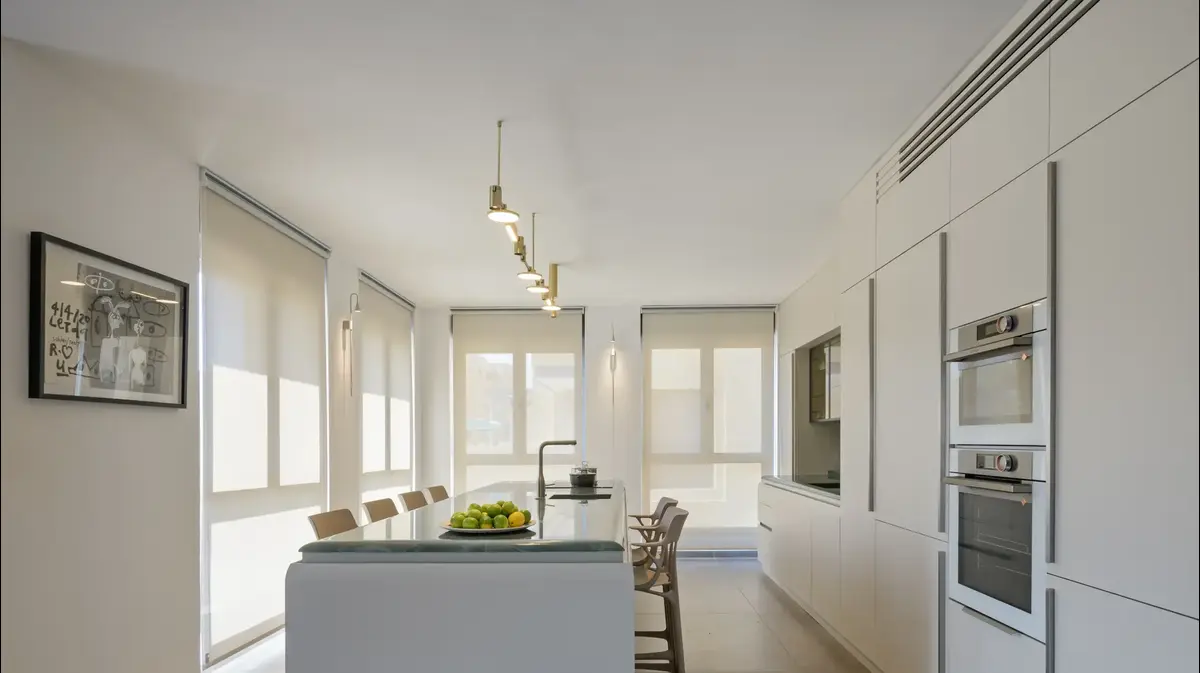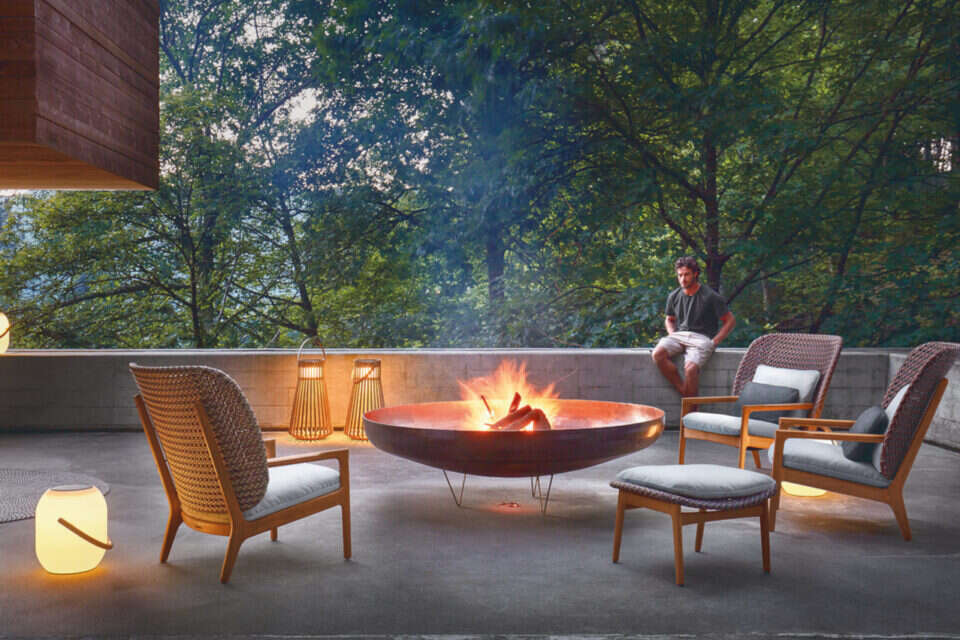Enlarge image
Plenary session in the Bundestag on December 16, still in the old seating arrangement: on the far right, the AfD, next to it the FDP
Photo: Michael Kappeler / dpa
Political symbols organize, shape and refer to history.
Whoever sits with whom can also become important at some point.
On the left in the Bundestag, seen from the presidium table, traditionally the left, on the right, the AfD's far right for four years.
So far so clear.
But who is sitting next to the AfD?
For four years, the arrangement was that the FDP, who returned to parliament in 2017, had to take a seat next to the AfD MPs from Alexander Gauland and Alice Weidel.
The protests of the liberals died away at that time.
Now that the FDP has been ruling with the SPD and the Greens for a week and a half, that has changed.
The traffic light parties will soon sit next to each other, while the CDU and CSU will have to move to the right.
Next to the AfD, a little way from the center.
This is what the traffic light parliamentary groups decided on Thursday, with the support of the left, against the votes of the Union parliamentary group and the AfD abstaining.
The craftsmen of the Bundestag will soon have to unscrew and move a few rows of chairs.
The decision on the new seating arrangement was preceded by a 31-minute exchange of blows in front of a plenum, which - except for the ranks of the AfD, which was sparsely occupied this time - was well filled.
Above all, the Union MPs were represented in such numbers as if it were an election for Chancellor.
They applauded their two speakers for a long time.
The CDU and CSU finally got the debate through.
But was it an "unworthy play", a "puppet theater" that AfD parliamentary deputy Stephan Brandner spoke of?
The debate was then unsuitable for the apolitical drama, as the AfD tried to talk down.
Because such emotionality is rarely argued in the Bundestag.
Political symbolism, by no means an obsolete model in a parliamentary democracy like the Federal Republic, in which symbolism has become rather rare.
Because the new seating arrangement not only serves the practical purpose of bringing the traffic light parties closer together, it is also about future political sovereignty.
The FDP wants to distinguish itself in the government as a party for the middle class.
So it's also about turf wars, the Union quickly understood that.
"They want to push us from our seats to the edge of the plenum," shouted the new First Parliamentary Managing Director of the CDU / CSU parliamentary group, Thorsten Frei, calling the process a sign of weakness and pettiness.
One should always look at things from the end, the CDU politician turned to the Greens: What would they say if they were placed between the FDP and AfD "at some point"?
Counterattack by the FDP
It was a profiling day.
Johannes Vogel, the new First Parliamentary Managing Director of the FDP parliamentary group, used his appearance to attack the Union, to the delight of his MPs, who were tightly packed in their ranks.
Vogel emphasized that the fact that one now has to deal with the seating arrangement in a debate is due to the Union, which has not allowed itself to be discussed in the Bundestag's council of elders.
He recalled 2017, when the FDP, with its request not to have to sit next to the AfD, failed because of the Union in the Council of Elders, defended the “right-left scheme”, which was “not perfect”, but for every visitor to the Bundestag give orientation in the stands.
With only a few exceptions in history, the FDP did not sit in the middle, but it was a "force of the political center," which is why his parliamentary group belongs in the middle of the plenary.
Then Vogel switched to attack: In the state parliaments of Schleswig-Holstein, Hamburg, Lower Saxony, Rhineland-Palatinate and Baden-Württemberg, his party sits in the middle, in Hesse and Bavaria, on the other hand, the CDU and CSU ensured that the FDP against her will had been "moved to the right" in parliament.
"Don't riot about the arrogance of power and disrespect," Vogel shouted to the Union.
The humor of the AfD politician Brandner
Irene Mihalic from the Greens found the role visibly more difficult to defend the project. She warned the Union against "exaggerating" the question that the seating arrangement was not set in stone. "Almost every party thinks they are in the middle", in fact the seating arrangement was enforced four years ago against the will of the FDP in the Council of Elders, all arguments were exchanged, their faction was now "in solidarity" with the coalition partner. It sounded similar with the SPD, whose speaker Katja Mast called out to the AfD that she understood "everyone in the house who is ashamed to sit next to you."
The AfD politician Brandner, notorious for his speeches in the last legislative period and once voted out of office as chairman of the legal committee, clearly undercut the level of his speeches in the Bundestag on that day.
He called the FDP a "power-obsessed, green-left submissive Postengrapscher party," and "one doesn't want to sit next to these blasé types from the FDP either."
There are "gray mottled freedom fighters of the FDP" who "crawl shamelessly" up to AfD MPs.
He even talked about his parliamentary group leader, who had told him of "lustful looks" from the FDP and who felt "sexually harassed".
Did he do Tino Chrupalla a favor?
So it went for just over three minutes, to the hoots and laughter of the AfD MPs.
Left also agrees with the traffic light
It was not expected that in the end the left-wing parliamentary group would also agree to the traffic light's proposal.
But left-wing speaker Jan Korte visibly enjoyed his appearance, sometimes he looked like an angel of revenge.
"This tearfulness is really unbelievable," he shouted to the Union, recalling their dealings with the PDS and Left Group over the past 30 years without being specific.
The AfD parliamentary group, which he described as a "brown puppet theater", next to which "every normal member of parliament" does not want to sit, had also made CSU politicians like Markus Söder and Alexander Dobrindt strong, especially in the field of migration, which was also "One reason you have to sit further to the right."
And in Saxony-Anhalt, his home country, the CDU "don't keep the door to the Nazis shut, it is wide open," he defended the new seating arrangement.
In the end, the FDP also got its fat, a kind of poisoned praise.
In the founding phase of the Federal Republic, Korte reminded of former Nazis in the FDP, the parliamentary group belonged "to the right wing" and not to the middle.
Since then, "a lot has changed," which is why the FDP's demand is legitimate.
His group will therefore support it here today.









